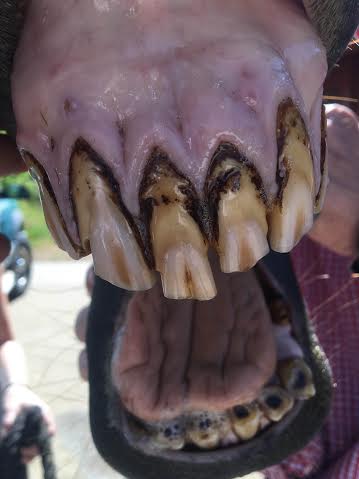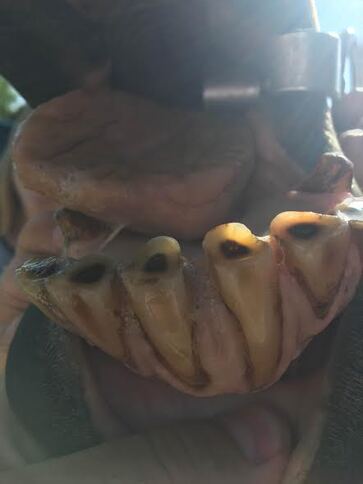|
EORTH is a newly recognized dental disease affecting both the incisors and canine teeth of the horses typically greater than 15 years of age. This disease is characterized by internal and external resorption of dental structure sometimes associated with excessive production of cementum on the exterior of the tooth. As the disease progresses, the pulp, periodontal ligament, and alveolar bone become inflamed and infected leading to reduced structural support for the teeth, degradation of gingiva, increased incisor angle, fistula formation, tooth fracture, and pain
EORTH in general is a painful disease. The most common initial sign of incisor pain is a reduced ability in grasping apples and carrots. Many horses will eventually become completely disinterested in these treats. Other signs of pain associated with EOTRH include sensitivity to biting, head shaking, drooling, resistance to turning during work, shyness about the head, periodic inappetance, weight loss, and decreased use of incisors for grasping and grazing. Dental radiographs help confirm the diagnosis of EORTH, and can illustrate the extent of the disease process. Surgical extraction of affected teeth may be required, but some cases have been managed by simple taking the teeth out of occlusion using dental floats. Full incisor extraction may lead to protrusion of the tongue especially when animals are at rest. Horses without incisor teeth have a high quality of life and most maintain their ability to graze on soft, fresh pasture. Should a full extraction be necessary, a nutritionally-balanced pelleted ration should be the main stay of the horse's diet to ensure adequate nutrition. |

